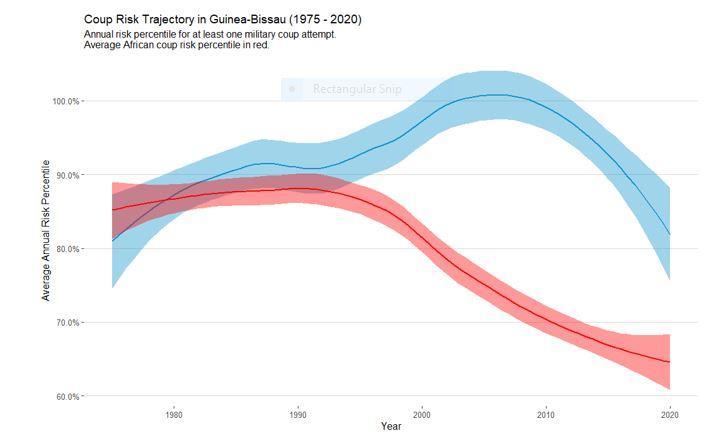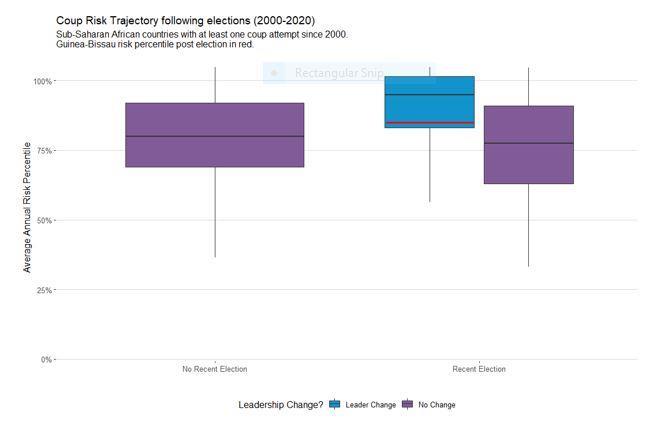Author:
Clayton Besaw
(MENAFN- The Conversation) Late last year Bissau-Guineans went to the polls to decide who would replace José Mário Vaz as president of Guinea-Bissau.
It was viewed as a crucial poll. Decades of instability and military intervention came down to this one moment. Would Guinea-Bissau see a peaceful transfer of power following Vaz's historic completion of his tenure as president?
The election was a run-off pitting Domingos Simões Pereira against Umaro Sissoco Embaló after Vaz failed to make the cut-off in the first round of voting.
Both Pereira and Embaló previously held the prime ministership. Emabló was also once a member of Pereira's ruling party before leaving it to form another one.
Embaló's tenure as prime minister was fragile. He formed a government without the help of his own party at the time and he resigned less than two years later, after coming into conflict with President Vaz.
The election was tense . Given the history between the contestants, it is not surprising. With a constitutional crisis as the backdrop , it would not have been far-fetched to expect the worst. Political rivalries have previously resulted in assassinations , military coups , and even civil war , with elections often serving as catalysts.
In the end, Embaló won with 53% of the vote . The election was ultimately peaceful, earning praise from the United Nations .
So what might this mean for coup risk and stability in future in Guinea-Bissau?

CoupCast: https://oefresearch.org/activities/coup-cast/methodology Using CoupCast, a machine learning algorithm , we can quantify structural coup risk at the country level and forecast future risk. CoupCast uses over 70 predictors of coup risk and country-month data going back to January 1950.
CoupCast is an open-source tool that combines substantive expertise on coups with modern machine learning forecasting methods. Publicly released in 2016, the tool has performed well at identifying countries with a high structural risk of a coup event .
When forecasting Guinea-Bissau's risk post-election, CoupCast suggests that the country's risk remains higher than the average risk in sub-Saharan Africa.
Embaló's post-election coup risk remains higher than similar countries but CoupCast also suggests a slow decline in risk into the future.
Cause for optimism
Guinea-Bissau has had to navigate considerable political instability over the past two decades and risk is not likely to decrease quickly, but there are reasons to be optimistic.
It appears that Vaz's military reforms have worked. The ongoing constitutional crisis might have pushed the military to intervene in the past, but forced officer retirements and a high-profile punishment of an attempted coup plotter may have been key to containing further military plots.
If Embaló can finish his term and hold elections, this will be the gold standard by which to strengthen Guinea-Bissau's slow and steady trajectory towards political stability.
The country will also need to maintain its firm commitment to reforming the military and cracking down on organised crime as first steps to continuing political stability.
Guinea-Bissau has seen an increase in the population of young people over the past two decades, and has one of the worst youth development index scores in the world.
As the country improves one source of stability, it should not neglect the potential problems that come with an underserved youth demographic. Achieving growth and stability is a long-term process and Bissau-Guinean leaders should seek to take advantage of their gains by addressing pressing problems related to economic opportunity and youth employment.
Coup risk remains
Overall, the country's coup risk trajectory looks optimistic. The country has made considerable political gains since the last coup event in 2012. And coup risk in Guinea-Bissau is likely to decline.
Nevertheless, the coup risk remains significantly higher than in much of the region.
The continued relative risk is due to two main factors.
First, economic and socio-economic indicators remain poor . Second, according to CoupCast, coup risk can escalate around both elections and leadership change.
This trend is likely playing out in Guinea-Bissau.
Not taking into account the election, we estimated that Guinea-Bissau's coup risk is higher than 75% of all other countries in 2020. Once the algorithm takes into account both the election event and Embaló's tenure, the country's risk percentile increases, making it the highest at-risk country in sub-Saharan Africa.

CoupCast: https://oefresearch.org/activities/coup-cast/methodology This is not surprising.
Elections in which leadership changes occur are often flashpoints for coup events, especially if the ruling party loses out or the military decides that they do not support the opposition.
Comparing all sub-Saharan African countries that have experienced at least one coup event since 2000, countries such as Burkina Faso and Zimbabwe, we can see that coup risk percentile is highest after elections in which the leader changed.
MENAFN1602202001990000ID1099712240
Legal Disclaimer:
MENAFN provides the information “as is” without warranty of any kind. We do not accept any responsibility or liability for the accuracy, content, images, videos, licenses, completeness, legality, or reliability of the information contained in this article. If you have any complaints or copyright issues related to this article, kindly contact the provider above.